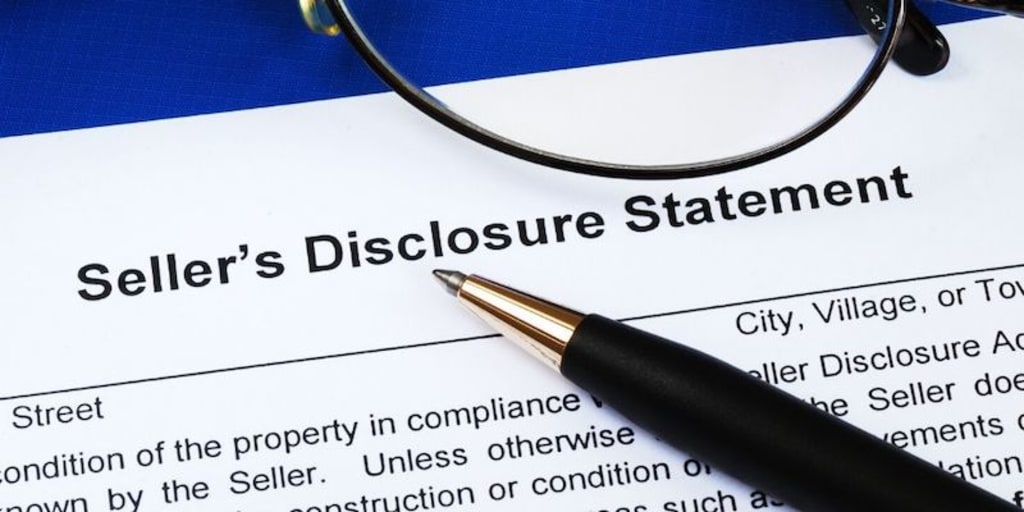What Must Be Disclosed When Selling?
Selling Your Home

When you are selling your home, many states now need you to complete a disclosure statement to the buyer. Filling out a disclosure form provides the buyer with an understanding of the condition of the property. This allows buyers to better comprehend any issues and if the home is worth the cost to them.
If you need to fill out such a disclosure statement, intentionally leaving out material information on the disclosure can lead to legal issues. If you list your home in the MLS without a Realtor then you will not receive any counseling about what should be disclosed.
We'll take a look at what needs to be disclosed and how to properly complete a disclosure statement.
Disclosure Statements
There will be a standard disclosure form for residential homes. In California, the form is referred to as a Transfer Disclosure Statement. A seller will be required to complete a disclosure statement truthfully about the condition of the home. This will include the following features and possible flaws of your home, among others. It is important to disclose known defects with the home to a buyer and include information about the HVAC system, the roof, foundations, any water leaks or mold.
The disclosure statement should provide the buyer with details of the important points and issues that are present in your home. The statement is then provided to the buyer so they know the issues that exist within a home. The buyer has the right to review the form and ask for additional information if needed. There may be items on the disclosure statement that a buyer will decide they do not want to proceed with the purchase, so this needs to be taken into account when listing the home.
Who is Required to Fill Out a Disclosure Form?
The laws vary by state, but the responsibility of completing the disclosure is the homeowner. If a homeowner has not resided in the home or it has been an investment property, then the homeowner needs to state that. The information on the disclosure statement needs to be truthful.
If you are an investor and have never lived in the home, you will still need to fill out the disclosure statement.
Depending on the rules within the state, there could be exceptions in cases where the home was inherited, new construction or purchased through foreclosure. If a buyer is purchasing a home from a bank, and there is no history, then it is imperative that a buyer have a thorough home inspection to ensure they learn as much about the property as possible.
If you are unsure, be sure to consult your Realtor about what needs to be completed on this form. And if there is a question on the form where a seller does not know the answer, then they should say they do not know.
What Should be Disclosed?
When considering if something needs to be disclosed on the form, it is important to consider how it would be perceived in a court of law. If there were obvious signs that a seller did not complete it truthfully, then there may be consequences to the seller.
There may be defects in the property that are not obvious to you or any ordinary person walking through the home. You can't be expected to disclose something you have no knowledge of, for instance. If the issue is minor, it is also unlikely to be a problem if not disclosed.
For example, if your home had a leaking roof and you painted over the water damage. Then this was only discovered by the new owner when it rained, the seller risks legal consequences. Defects should not intentionally be covered up and hidden from a buyer. Although the laws vary by state, there are items which are required to be disclosed and include the following:
- Evidence of mold
- Death on the property (within a certain number of years)
- Evidence of pests in the property
- Neighbor disputes including over property line
Selling Your Home "As-Is"
If your home has some problems and you are unable to make the necessary repairs prior to before listing, selling the home "as-is" may seem like an option. However, you will still be required to complete a disclosure form and reveal details about the property to the buyer.
Conclusion
Making a truthful disclosure statement is an important part of a real estate sale in many states. If you make a mistake or try to hide problems with the home, there may be legal consequences. Keep in mind, you want the buyer to know everything about the property so they are making an informed purchase.






Comments
There are no comments for this story
Be the first to respond and start the conversation.